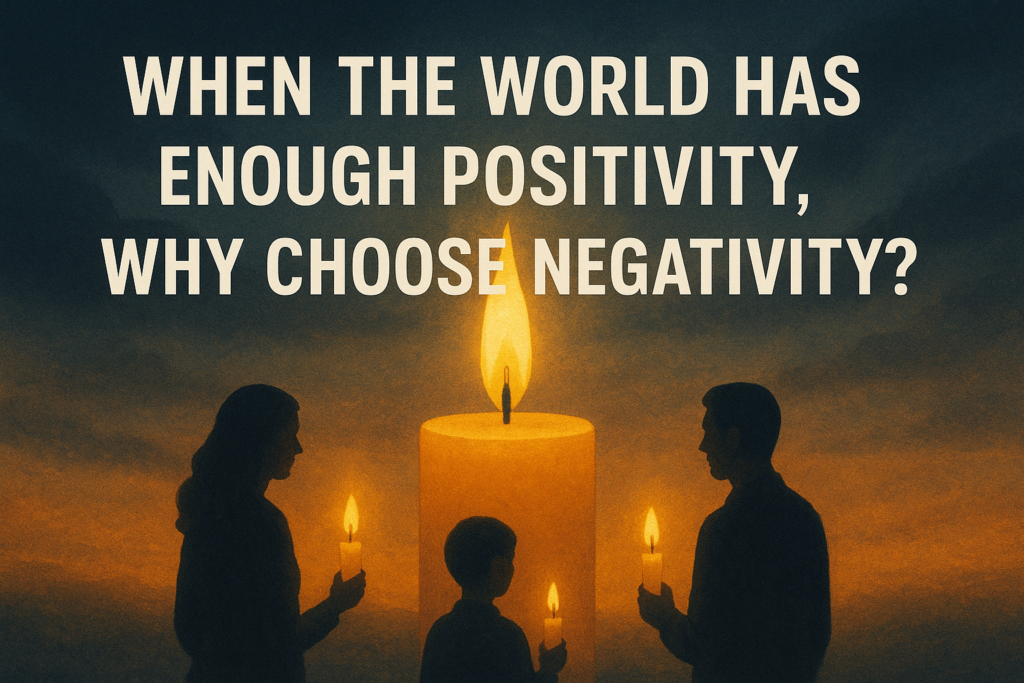In a world where people chase wealth, power, and fleeting pleasures, one fundamental truth often gets buried under layers of ambition and distraction: every soul is destined to attain Moksha. Whether it happens in this lifetime or a hundred lifetimes hence, Moksha is the final liberation, the ultimate freedom from the cycles of birth and death. This blog is not another spiritual commentary filled with clichés. It is a wake-up call. A philosophical yet practical exploration of why we exist, what we are really meant to achieve, and how Kriya Yoga can be the most powerful and direct path toward liberation.
What is Moksha?
Beyond Heaven and Hell
Moksha, in the simplest sense, means liberation. But liberation from what? Not from pain alone, but from the entire duality of existence—pleasure and pain, love and loss, birth and death. It is a state where the soul, or Atman, realizes its oneness with the Infinite—the Brahman—and escapes the perpetual cycle of samsara.

The Inevitability of Moksha
Contrary to common belief, Moksha is not reserved for saints or ascetics alone. It is the ultimate destination for every living being. Just as a river inevitably merges into the ocean, every soul, regardless of how far it strays, must return to its Source.
Moksha, Enlightenment, and Self-Realization: One or Many?
Are They the Same?
One of the most common confusions in spiritual discussions is the relationship between Moksha, Enlightenment, and Self-Realization. While they are used interchangeably in many traditions, each has a nuanced definition:
- Self-Realization is the moment of recognizing the true Self—the Atman—as distinct from the body, mind, and ego.
- Enlightenment is the deep, irreversible insight into the nature of reality, where the individual ego dissolves, and universal consciousness is perceived.
- Moksha is the final liberation from all karmic bondage and the cycle of birth and death.
The Progression Explained
In essence:
- Self-realization is the awakening step.
- Enlightenment is the transformative process.
- Moksha is the culmination.
Self-realization can occur through knowledge or meditation, but may not immediately lead to Moksha unless the tendencies (vasanas) are fully dissolved. Enlightenment sharpens and stabilizes this realization. Moksha happens when there is no residue of karma, attachment, or ignorance.
Eastern Traditions on the Terms
- Advaita Vedanta sees all three as stages of Jnana Yoga.
- Buddhism equates Enlightenment (Nirvana) with Moksha, but without the concept of an eternal Self.
- Kashmir Shaivism holds that real liberation occurs only when realization becomes our spontaneous experience, not just intellectual understanding.
Why Are We Distracted From Moksha?
The Trap of Materialism
From childhood, society conditions us to believe that success means career growth, family, luxury, and recognition. There is no denying that these pursuits have their place. But when they consume us entirely, we lose sight of our soul’s ultimate journey.
The Delusion of Permanence
One of the primary reasons we ignore Moksha is the illusion that life is permanent. We live as if we are going to be here forever, ignoring the only certainty of life—death. The denial of mortality fuels our obsession with the transient.
Cultural Amnesia
Modern society suffers from a form of spiritual amnesia. Ancient wisdom has been reduced to rituals devoid of meaning. The pursuit of Moksha has been replaced with the pursuit of entertainment.
Recognizing the Inner Calling
The Unsettled Mind
No matter how much we achieve, there remains an inner void. This discomfort, this discontent with the superficial, is the soul’s whisper, urging us to look inward.
Signs of the Soul’s Awakening
- A sudden loss of interest in material pleasures
- A deep desire to understand life’s purpose
- Restlessness even in moments of comfort
- Repeated existential thoughts
These are not signs of depression but of spiritual awakening.
Why Moksha Matters More Than Ever Today
The Age of Anxiety
We live in an era of unprecedented technological progress and psychological regression. Stress, anxiety, depression, and loneliness are at all-time highs. Why? Because we are trying to solve inner problems with external solutions.
Moksha as the Ultimate Mental Health Solution
Moksha is not an escape—it is a state of consciousness where suffering cannot exist. When the ego dissolves, so does fear, attachment, and suffering. Mental peace becomes your default state, not a goal.
The Shortcut to Moksha: Kriya Yoga
What is Kriya Yoga?
Kriya Yoga is an ancient meditative technique revived in modern times by Mahavatar Babaji and taught through the lineage of Lahiri Mahasaya, Sri Yukteswar, and Paramhansa Yogananda. It is not a religion but a scientific method to accelerate spiritual evolution.
The Science Behind Kriya Yoga
Kriya Yoga involves pranayama (controlled breathing), concentration, and meditation to circulate life energy (prana) up and down the spine. This technique purifies the nervous system and accelerates spiritual awakening.
How Kriya Yoga Differs from Other Paths
While devotion (bhakti), knowledge (jnana), and selfless service (karma) are traditional paths to Moksha, Kriya Yoga integrates all three, using the breath as a bridge between body, mind, and soul.
It is not about dogma, but about inner transformation, a practice that makes you self-reliant on your own spiritual progress.
Practical Steps to Begin the Journey
Step 1 – Seek a Guru
Kriya Yoga is a sacred science and must be learned through an authorized teacher or lineage. A guru is not a preacher but a guide who has already walked the path. For a better understanding, read the book Purana Purusha: Yogiraj Sri Shama Churn Lahiree: A Complete Biography .

Step 2 – Develop Daily Discipline
Without consistency, even the most powerful technique is useless. Daily sadhana (practice) is non-negotiable. Start small—10 minutes of meditation, gradually building to longer sessions.
Step 3 – Cleanse Your Lifestyle
Kriya Yoga works best in a body and mind that are not overburdened by toxins, addictions, or emotional clutter. Reduce meat, alcohol, negative media, and toxic relationships.
Step 4 – Study Sacred Texts
Read and reflect on the Bhagavad Gita, Upanishads, and Autobiography of a Yogi. These texts are not merely books but living energies that awaken deeper realizations.
How Moksha Transforms Life Now
Liberation in This Life
Moksha doesn’t mean you vanish into thin air. It means living in the world without being of it. You can still run a business, raise a family, or paint a masterpiece—but from a state of deep, unwavering inner peace.
Benefits of a Moksha-Oriented Life
- Unshakeable peace and contentment
- Detachment from outcomes
- Clarity of purpose
- Deep compassion without attachment
- Immune to manipulation or psychological games
- Fearlessness in the face of adversity
Real-Life Examples of Moksha Seekers
From Corporate CEO to Kriya Yogi
One former CEO of a Fortune 500 company left it all behind to live in the Himalayas after experiencing a spontaneous spiritual awakening. Through Kriya Yoga, he claims to have found a joy that no business deal ever gave him.
The Homemaker Who Became a Mystic
A simple Indian woman, living a traditional family life, began Kriya Yoga in her 50s. Within 10 years, she became a spiritual teacher guiding hundreds. Her transformation is living proof that anyone, at any stage, can begin.
The Teenager Who Chose Silence
A 19-year-old student gave up social media and committed to a life of yogic practice. Within a few years, his insights into consciousness rivaled those of seasoned monks. Silence became his teacher, and breath his mantra.
Debunking Myths About Moksha
Moksha is not Boredom
People fear that without desires or ego, life will be boring. On the contrary, Moksha reveals a joy so expansive and blissful that all worldly pleasures seem like mere shadows.
Moksha is Not Death
It is spiritual death—the death of ego and ignorance—but it brings the birth of true life. The Jivanmukta (liberated while living) is fully alive, radiant, and free.
Moksha is Not Escapism
Moksha is not running away from responsibilities. It is facing them with clarity, love, and detachment. It is engaged detachment, not passive withdrawal.
Conclusion: Are You Ready?
Moksha is not a myth. It is not a luxury. It is the only true purpose of life. Everything else—money, relationships, achievements—is a chapter, not the book. Once you understand that the soul’s final goal is liberation, you begin to live with deeper intention, clarity, and joy.
Why Delay the Inevitable?
If Moksha is your destiny, why postpone it? Why waste another lifetime in confusion and suffering when the door is already open through Kriya Yoga?
Your Journey Begins Now
Not tomorrow, not after retirement—now. Sit in silence. Breathe consciously. Seek the truth within. Let the sacred path of Kriya Yoga guide you home.
“The soul’s quest is not for pleasures of the world, but for freedom from the world. That freedom is Moksha. That path is Yoga. That time is now.”
#Moksha, how to attain moksha, #enlightenment and moksha, #self-realization and liberation, #Kriya Yoga and moksha, #ultimate purpose of life, #spiritual awakening, #soul liberation, #karma and moksha, #benefits of kriya yoga, #moksha versus enlightenment, #spiritual journey guide
Disclaimer:
The facts and opinions in the article have been taken from various articles and commentaries available in the online media, and Eastside Writers does not take any responsibility or obligation for them.
Note: Contact our Writers at www.eastsidewriters.com for writing Blogs/Articles on any niche. We have experts in various domains from Technology to Finance and from Spirituality to Lifestyle and Entertainment.







Pingback: 🌿 The Power of Now — A Realistic Reflection from a Practical Reader - Eastside Writers